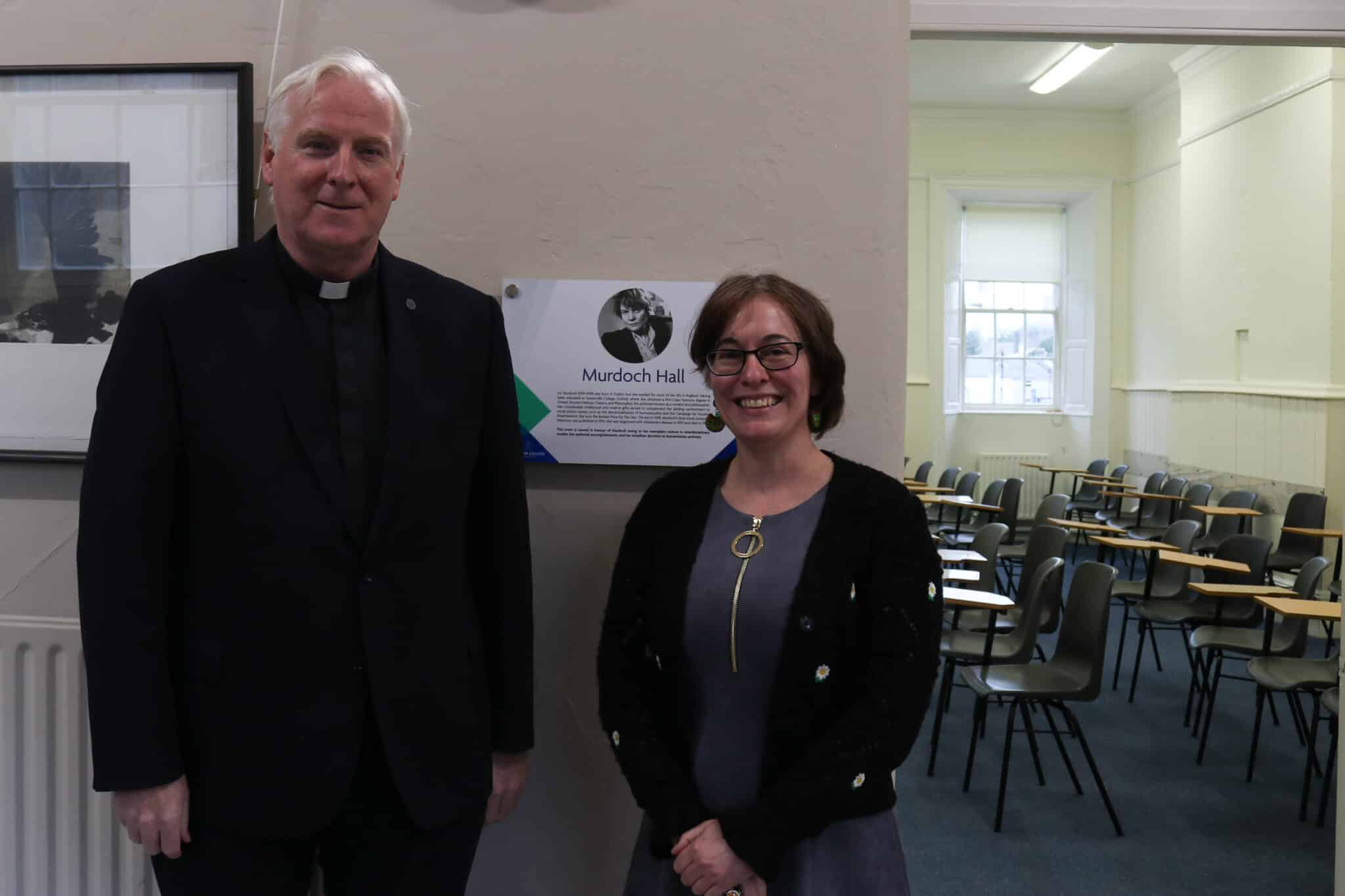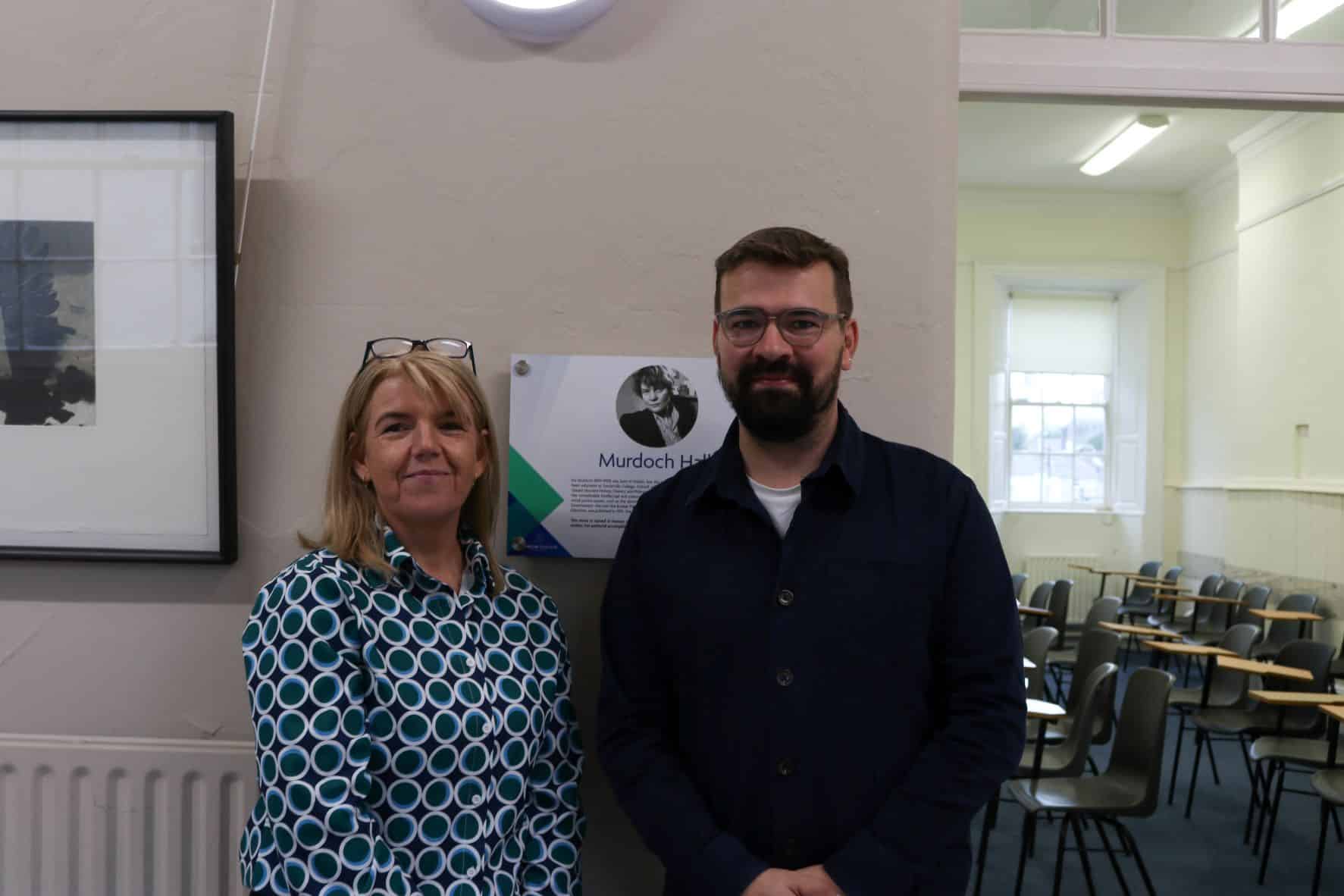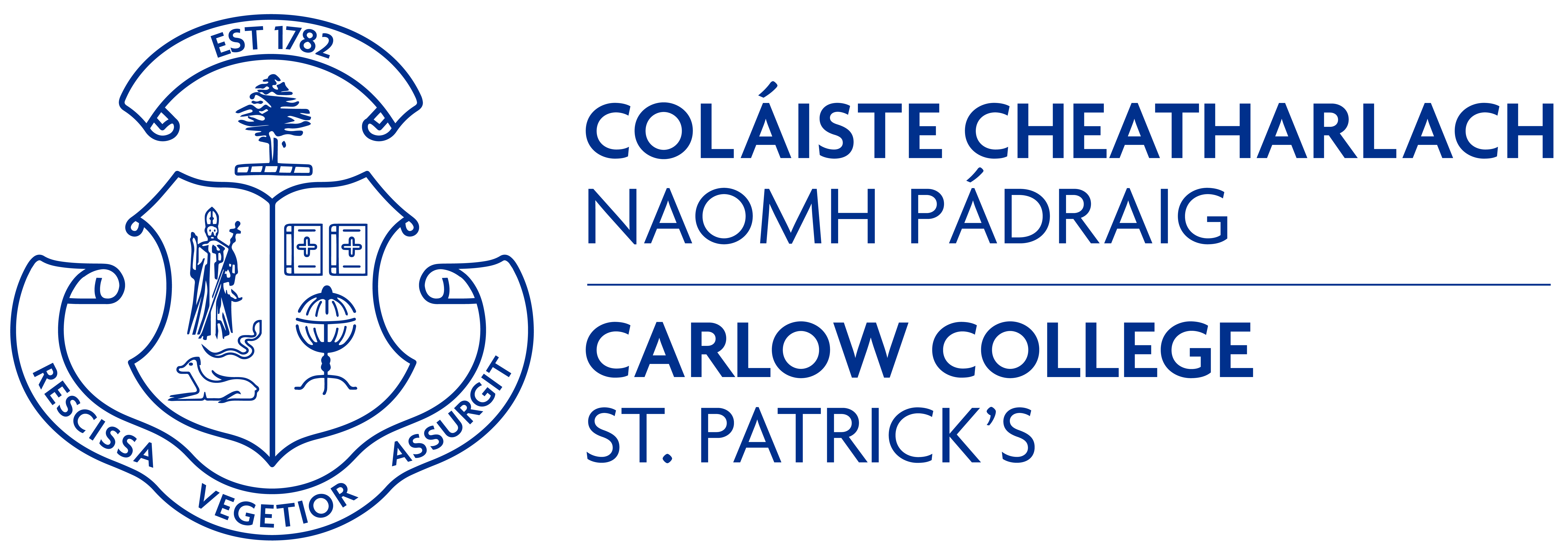A special ceremony to mark the official naming of the Iris Murdoch Hall took place on Monday, 3rd October at Carlow College, St. Patrick’s. The event saw one of the College’s main lecture halls renamed in honour of female philosopher, Iris Murdoch.
The renaming of the former Philosophy Hall was a key initiative as part of the College’s commitment to promoting equality in education through its Athena SWAN action plan. The College received the Athena SWAN Bronze Award in January 2022.
Speaking at the event, Lecturer in Philosophy, Dr Sarah Otten, said: “To be a full person is to be a political person – someone who is seen in the public sphere, who can be taken seriously in the public sphere – who is regarded as important by our society; traditionally, women were not believed to be capable of these attributes. Philosophy as a field reflected these ideas. It did not regard women as rational creatures. That is why the renaming of this room is so important. Because it makes visible the reality that a woman is rational, a woman can and did write serious books about serious topics that added something new and interesting and valuable to human thought. It challenges the stereotype of woman as not having the attributes necessary for full participation in the decisions of society.”
Commenting on the ceremony, Chair of the College’s Athena SWAN Self-Assessment Team, Fiona McGuill said: “Today’s event is just one of the many initiatives the College has introduced as part of its commitment to the principles of the Athena SWAN Ireland Charter. Equality, Diversity and Inclusion (EDI) is of paramount importance in Carlow College and the renaming of this lecture hall after such a prominent female philosopher demonstrates its commitment to EDI and gender equality.”


About Iris Murdoch
Dame Iris Murdoch was born in Dublin in 1919 to Anglo-lrish parents. She went to school in London and Bristol, before studying at Somerville College, Oxford, and later at Cambridge. On leaving University in 1942, she worked for the British Government in the Treasury Department, and with the United Nations Relief and Rehabilitation Administration. After the war she went to Belgium and Austria, where she worked in a Displaced Persons Camp. In 1948 she was made a Fellow of St Anne’s College, Oxford, where she lectured in Philosophy. In 1956 she married the critic and Oxford Professor of English, John Bayley. She was awarded a CBE in 1976 and a DBE in 1967. Her novels have been translated into 26 languages.
Widely regarded by many critics as one of the most important post-war novelists, her fiction includes Under the Net (1954), The Bell (1958), A Severed Head (1961), Bruno’s Dream (1969), The Black Prince (1973), The Sacred and Profane Love Machine (1974), winner of the Whitbread Novel Award, The Sea, The Sea (1978), winner of the Booker Prize for Fiction, The Good Apprentice (1985) and The Green Knight (1993). Her books on philosophy include The Sovereignty of Good (1970) and Metaphysics as a Guide to Morals (1992). Her plays include The Servants and the Snow, adapted into a libretto for an opera by William Matthias in 1980, Art and Eros and The Black Prince. Her portrait by Tom Phillips was placed in the National Portrait Gallery in 1987.
Dame Iris Murdoch died in 1999.

